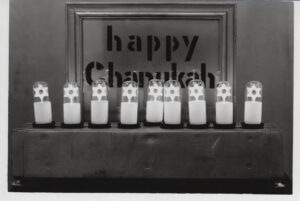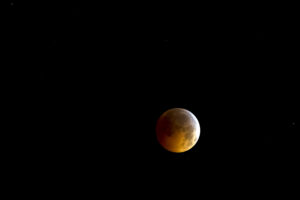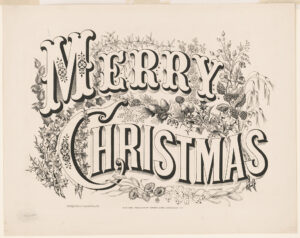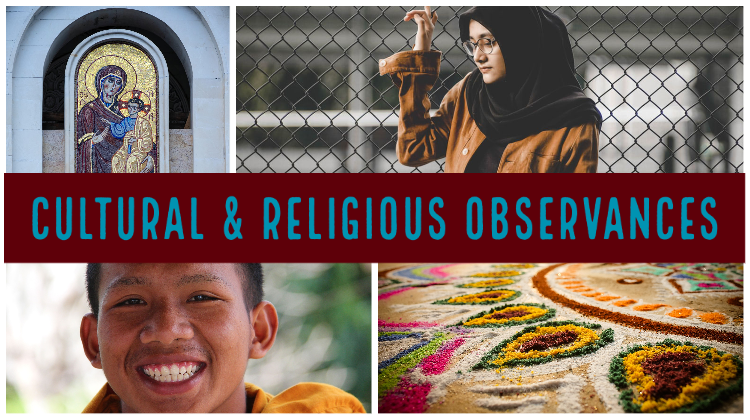Chanukah

Culture/religion: Judaism
Date: December 18-26
Chanukah is the Jewish eight-day festival of lights, celebrated each night with menorah lighting, special prayers and fried foods. Chanukah means “dedication” in Hebrew and is named as such because it celebrates the rededication of the Holy Temple. In second century BCE, Judah the Maccabee drove the Greeks from the land and reclaimed the Holy Temple in Jerusalem, rededicating it to the service of God.
Chanukah begins at sundown December 17.
Alternate spelling: Hanukkah, Chanukkah
Pronunciation: KHAH-nik-uh / KHAH-noo-kah
Sources:
What is Hanukkah?, Chabad
Glossary of Jewish Terminology, Judaism 101, jewfaq.org
Yule (Winter Solstice)

Culture/religion: Pagan/Wiccan
Date: December 21
Yule is a Pagan holiday that takes place on the day of the winter solstice. It originated with early Germanic peoples and is considered a time of rebirth, renewal, new beginnings.
The winter solstice is when the earth’s axis tilts away from the sun, and the sun reaches its greatest distance from the equatorial plane – lengthening the days and shortening the nights. Given this, the most important part of the Yule celebration is light such as candles and bonfires.
Sources:
History of Yule, Learn Religions
Christmas

Culture/religion: Christianity
Date: December 25
Christmas is the Christian celebration of the birth of Jesus Christ. The actual date of Jesus’ birth is unknown, but December 25th was set as the date by the church in the early fourth century.
Since the early 20th century, Christmas has been a secular family holiday observed by Christians and non-Christians all over the world, though traditions and practices vary within different cultures and communities.
Sources:
Christmas, Encyclopedia Britannica
Christmas, Wikipedia

